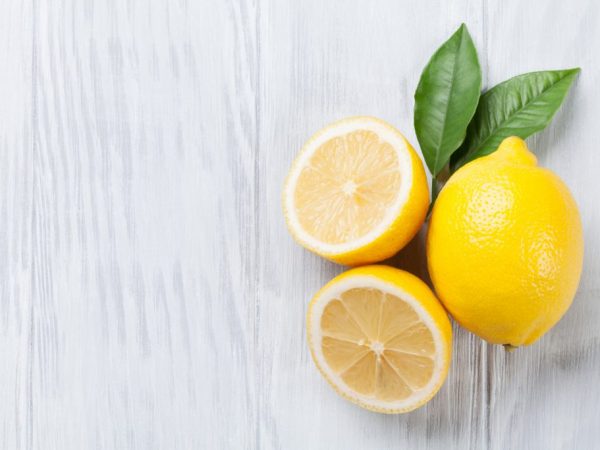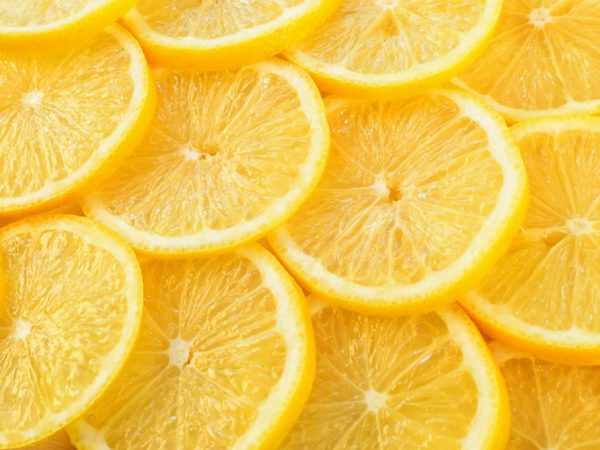Vitamin content in lemon
Citrus fruits are considered beneficial for the human body, because fruits are famous for their vitamin C content. The content of vitamins in lemon is a record high compared to other citrus fruits.

Vitamin content in lemon
Vitamin content in lemon
Vitamins are found in lemon in large quantities. Some are not even known to most people who consume the fruit. All of them are important for the human body:
- AND;
- B1 (thiamine);
- B2 (riboflavin);
- B4 (choline);
- B5 (pantothenic acid);
- B6 (pyridoxine);
- B7 (biotin);
- B9 (folate);
- C;
- beta carotene;
- E;
- group PP.
Lemon contains more vitamins, some less. Vitamin group levels are measured in 1/10 mg and μg.
Mineral content in lemon
The fruit also contains minerals:
- Calcium - 40 mg;
- Magnesium - 12 mg;
- Sodium - 11 mg;
- Potassium - 163 mg;
- Phosphorus - 22 mg;
- Chlorine - 5 mg;
- Sulfur - 10 mg;
- Iron - 0.6 mg;
- Zinc - 0.125 mg;
- Copper - 240 mcg;
- Manganese - 0.04 mg;
- Fluorine - 10 mcg;
- Molybdenum - 1 mcg;
- Boron - 175 mcg.
Useful substances in the zest
In the zest, which is most often not eaten, there are such useful substances as:
- Pectin.
- Hesperidin.
- Acids: citric, malic, formic.
- Vitamin C is also present in the lemon peel.
- Limonene.
- Salvestrol.
- Flavonoids.
- Polyphenols.
- Essential oil.

In boiling water, the fruit loses half of its nutrients.
Rub the top yellow layer of the fruit without touching the white skin, as it tastes bitter. To facilitate the task, the zest is cut and frozen, then grated.
To get a healthy zest, you should pay attention to the quality of the fruit. They should be free of wax. To disinfect the fruit, soak it in water with apple cider vinegar for 10 minutes (1: 1 ratio). If you pour boiling water over the fruit, the microbes will die, but the fruit will also lose half of its beneficial properties.
Calorie content and daily rate
This citrus is considered a low-calorie food. It contains 34 kcal per 100 g. The daily intake of vitamin C depends on age. It ranges from 45 mg per day for children from 4 to years old and up to 75-90 mg for adults.
The juice of one citrus contains about 30% of the daily value for an adult. You shouldn't use it in its pure form.
How to keep the benefit
Lemon contains vitamins and minerals in large quantities, but you need to learn how to use the fruit correctly so that it retains its beneficial properties:
- It is worth choosing natural citrus fruits. If the fruits are smooth, even and shiny, this is a sign that they may contain harmful substances.
- Do not subject the pulp and zest to boiling water. At this temperature, the nutrients in lemon are destroyed, leaving only 50% of their original amount.
- Freezing, contrary to popular belief, does not affect the composition of the fruit. With any kind of freezing, the composition is preserved by 90%.
- Dried citrus fruits also do not lose their beneficial properties. Their number decreases due to heat treatment, but the fruit is still useful for humans. Citrus zest is also dried.
It is better to eat the fruit raw with a little sugar. You can add a slice to warm tea or coffee. Vitamins in lemon are not destroyed up to 40 ℃.
Useful properties of lemon
The composition of lemon is rich in vitamins and minerals that are useful for the human body. It is worth eating the fruit not only in case of illness, but also as a prophylaxis. Citruses are good for:
- Eye (due to beta-carotene content).
- Skin (substance C and riboflavin improve collagen production).
- Immunity (supported by C).
- Bones, nails, teeth (thanks to calcium and riboflavin)
- Production of hemoglobin.
- Stabilization of pressure and nutrition of nerve cells.
- Intestine.
- Reducing cholesterol levels.
- Slowing down the aging process.
- Hair (essential oil is used in cosmetology).
- Stops the development of cancer cells.
- Prevention of bacteria that die in citric acid.
- Slimming. Vitamin C in lemon reduces appetite. Citrus juice drinks complement a balanced diet.
Contraindications to use
Vitamins in lemon are not a panacea for all diseases. Eating it in food is not a substitute for traditional medicine. It is better not to get carried away with it excessively, since there are a number of contraindications.
People with allergies, diseases of the gastrointestinal tract, weak enamel on the teeth are not recommended to take citrus juice or untreated slices. And also the fruit is not used for inflammatory processes in the throat (acid irritates the mucous membrane), you should carefully use the fruit for hypertension.
Conclusion
The vitamin content in lemon is high. In addition to them, citrus contains macro and microelements, contains a high level of minerals. There are also many useful substances in the skin of the fruit. The zest is easy to remove with a grater. In addition to benefits, the fetus is also harmful. You can not use citrus fruits if you are not sure of their quality.


